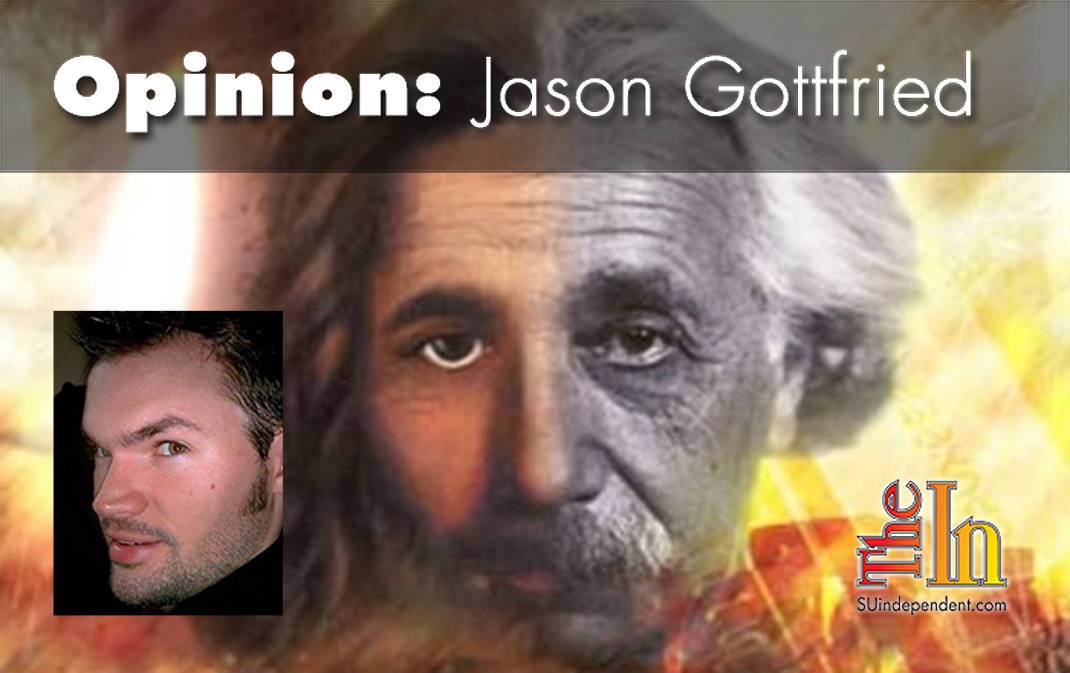
Should we obey the laws of man or believe in the laws of God? Do you just believe what your religion tells you, or can you think beyond religion?
From where I stand, a chronic problem in southern Utah society stems from the fact that, apparently, the alleged laws of God supersede the laws of man in many people’s eyes. The LDS Church is dominant in all aspects of life here, and Mormon interests appear to be held quite high in comparison to basic civil human interests. No, this isn’t an “I hate the LDS Church” piece. It’s an “I want people to stop and think” piece.
 News flash: I was brought up in the church — not the Mormon church, the Protestant church. I hopped from Presbyterian to Methodist and finally Baptist churches in Cincinnati, southern Kentucky, and Nashville. I accepted Jesus into my heart and was christened at a very young age and was later baptized as a teenager. I went on two summer missionary trips in high school, one to repair hurricane devastation in the Carolinas and one to work in a soup kitchen in Boston. I regularly played in church services, often three times Sunday mornings, from my early youth through college.
News flash: I was brought up in the church — not the Mormon church, the Protestant church. I hopped from Presbyterian to Methodist and finally Baptist churches in Cincinnati, southern Kentucky, and Nashville. I accepted Jesus into my heart and was christened at a very young age and was later baptized as a teenager. I went on two summer missionary trips in high school, one to repair hurricane devastation in the Carolinas and one to work in a soup kitchen in Boston. I regularly played in church services, often three times Sunday mornings, from my early youth through college.
I know what it’s like to be unable to see past my nose, religiously speaking.
When I was in college, I studied composition and music performance. No, I didn’t study English or journalism, although I did have a few professors try to convince me to switch majors and was offered a full ride with a teaching assistantship to study English in graduate school.
For a while, although I started studying music privately when I was 6, I considered changing majors … but not to English — I considered abandoning my performance degree and attending seminary.
While I was considering that, I took classes on Jewish religious traditions and the New Testament. What I learned completely blew my mind.
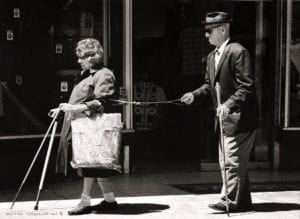
I realized that not a single person who had taught be about my religion had any idea what the scriptures mean, who wrote them, who compiled them, what the various social contexts were, and so on. The religion I was raised on was (and largely is) an imaginary construct based on a serious of egregiously inaccurate beliefs about a body of literature that was (and largely is) thoroughly misunderstood. It was the blind leading the blind.
This forced me to seriously reevaluate my beliefs and open my eyes. It was a turning point for me, and while derailment was painful, it was a fortuitous, defining moment in my life. I’d always wanted to know what was really true, not what was safe or familiar or what felt good. Taking those classes was one of the best decisions I ever made.
Now on the outside looking in, I was able to see the holes in my own arguments that were previously invisible to me. Even when they had been pointed out in debate with secular-types, I could not see them because of my beliefs. Even worse, the people with whom I would debate didn’t understand the scriptures I was discussing well enough to really trounce me. Neither did I.
Ever since that experience, I decided that it was not my place to destroy another person’s faith. It is my place, however, to hold untruths up for scrutiny so that others who have fallen under delusion can have a chance to see things as they are.
 News flash: I’m now a daily-practicing Buddhist. It resonates with all of my Judeo-Christian values without any of the excuses, fairy tales, or bells and whistles. Buddhism is not a religion. It’s not a philosophy. It’s not a lifestyle. It’s not any of the things it’s commonly misunderstood by mainstream Western society or pop culture to be. It’s simply a daily meditation-based practice geared towards developing the faculty of clear seeing, clear understanding, and acceptance. It’s a process and a commitment.
News flash: I’m now a daily-practicing Buddhist. It resonates with all of my Judeo-Christian values without any of the excuses, fairy tales, or bells and whistles. Buddhism is not a religion. It’s not a philosophy. It’s not a lifestyle. It’s not any of the things it’s commonly misunderstood by mainstream Western society or pop culture to be. It’s simply a daily meditation-based practice geared towards developing the faculty of clear seeing, clear understanding, and acceptance. It’s a process and a commitment.
But I’m not here to write about Buddhism. I only mention it because the practice of clear seeing involves cutting through notions, perceptions, conditioning, desires, etc. It involves dropping everything — thoughts, feelings, everything — and examining what remains.
From my experience, what remains contains not even a remnant of religious dogma. Not a speck. Some of the things that some religious dogmas point to remain, but the dogmas themselves do not.
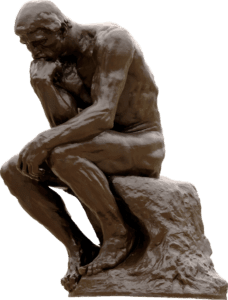 What we could use in southern Utah — and in the whole world, really — is less religious thought and more honest, clear thought … less clinging to beliefs and more thinking. Beliefs and ideas vanish when we stop believing and thinking about them. This illustrates that they are insubstantial. They’re not real. I know that is difficult for a lot of people to swallow because I very clearly recall being not merely unable but simply incapable of swallowing that kind of idea 15 years ago. Conditioning is a bitch!
What we could use in southern Utah — and in the whole world, really — is less religious thought and more honest, clear thought … less clinging to beliefs and more thinking. Beliefs and ideas vanish when we stop believing and thinking about them. This illustrates that they are insubstantial. They’re not real. I know that is difficult for a lot of people to swallow because I very clearly recall being not merely unable but simply incapable of swallowing that kind of idea 15 years ago. Conditioning is a bitch!
The laws of God have been written and rewritten ad nauseum, and always by mankind. God has had so many words put in her mouth by now that it’s no wonder people fight about what she has allegedly said to whom.
“Now, Kalamas, don’t go by reports, by legends, by traditions, by scripture, by logical conjecture, by inference, by analogies, by agreement through pondering views, by probability, or by the thought, ‘This contemplative is our teacher.’ When you know for yourselves that, ‘These qualities are skillful; these qualities are blameless; these qualities are praised by the wise; these qualities, when adopted & carried out, lead to welfare & to happiness’ — then you should enter and remain in them.” —The Buddha Siddhartha Gautama
The laws of man are no more or less holy and no more or less flimsy. But at least they are honest. The laws of man do not pretend to be something they are not. They are frequently biased and unjust, and they have been the tools of abject tyranny just as often as they have been the tools of justice. That’s still true.
But at least they can be taken at face value and molded to be something useful through the democratic process. The laws of God, on the other hand, reside in a golden mental cage, kept safe from the harsh, ruthless scrutiny of reason.
The adherents of the Mormon faith, being in a position of majority here, are tasked with self-honesty as are the Christians of my home. I am not saying that your church is wrong; I am saying that you are wrong to believe your church. Always. Ever. About anything. You are wrong to believe anything without testing it and seeing it proven true for yourself — apart from the influence of peer pressure. You are further wrong not to take the time to look hard and closely or not be skeptical about anything you are told to believe without first seeking proof.

The people whom you trust who will use the things you believe against you. Look at your local elected leaders, who despite their crimes are ironically also church members. Look at the local candidates. Look at the presidential candidates. Look at Fred Phelps. Look at L. Ron Hubbard. Look at Kent Hovind. Look at Henry Lyons. Look at Osho. Hell, let’s take it closer to home and look at Ervil LeBaron. Look at Jeffrey Lundgren. Look at Timothy McCleve. Look at Franklin Curtis. Look at Lon Kennard. Look at Todd Michael Edwards. Look at Michael Wayne Coleman. Look at Warren Jeffs. Look at Joseph Smith. Look at any disgraced religious leader and note the running theme: “Believe what I say and you’ll be just fine.” It’s always been a lie, and it still is.
Freedom of religion is important, but an inherent part of that is freedom from religion. When religion intrudes upon the populace and compromises law, a kind of reverse tyranny ensues, as is often the case in Utah.

There is too much at stake, particularly this November but moreover on a moment-to-moment basis. This is why freedom of speech and freedom of the press are absolutely invaluable. They are tools of public discourse. If we disagree, that’s great because it’s an opportunity to try to see things from another perspective. One of us might learn something. As the Buddha taught, attachment to views is delusional and a primary cause of suffering.
Ultimately, neither the laws of God nor the laws of man are worth much. But because the laws of man are tangible and the laws of God are tyrannical, the laws of man must take priority, and we should defend them. If our laws are shit (and they often are), we change the laws. But if you are blinded by the alleged laws of God and allow the laws of man to be compromised, the democratic process has already been subverted.
If you can’t think outside the box of your present religious views, whatever they may be, you can’t think. You’re just brainwashed, plain and simple.
You are not a herd animal. Don’t believe. Belief is useless. Hell, belief is dangerous. Honest inquiry and examination are tantamount. Look for yourselves first.





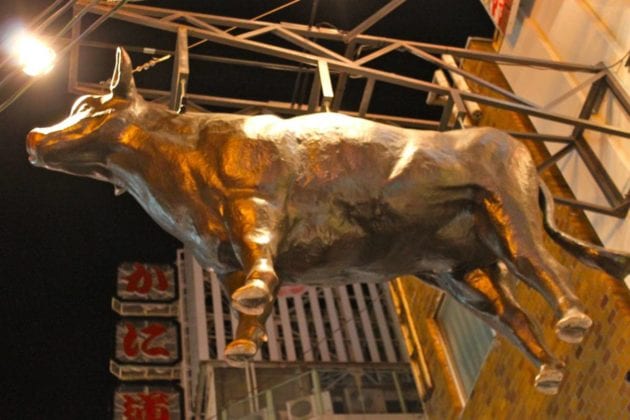
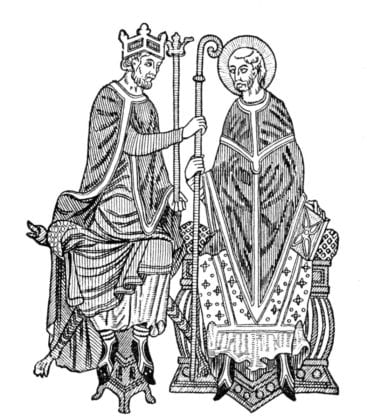
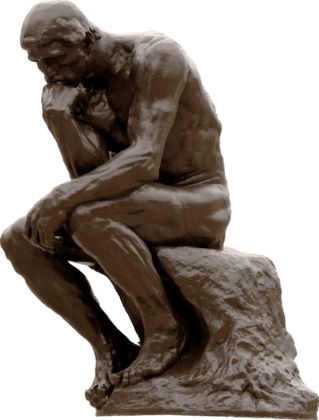

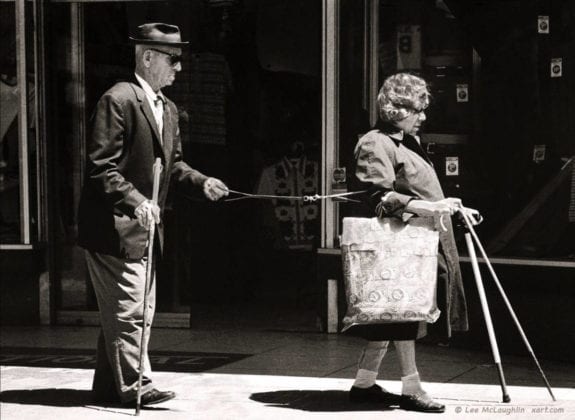
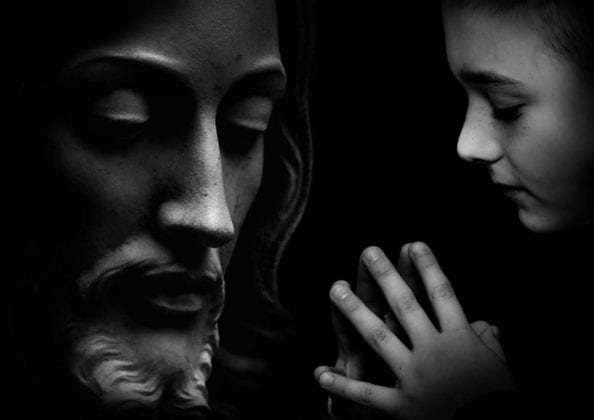




“The laws of man do not pretend to be something they are not. They are frequently biased and unjust…”
Huh? But the laws of man do pretend to be something they are not — to the degree a law can pretend one way or another. While enforcers and adjudicators of laws may recognize them as biased and unjust I’m not sure I’ve ever heard an legislator label them as such. They do pretend — in fact insist — that the laws are not biased and are just.
Always like to read about someone else’s quest to cope with life . Most lose my interest when they decide that my or others quest is not worthy. Not much to learn from a narcissist except that one does not want to be one.
Now here is a guy that does not see that he is doing the same things he accuses other of doing and the possibility exists they are both right . Finding a path through life that make an individual happy and leaves space for others to do the same is not all bad. Having laws from God man or Buddah to help us is also not bad. The real problem is when an individual has not thoughtfully chosen a path that benefits them or those around them. Our jails and streets are full of them .
Again,I am always amazed that people come to Utah who do not like Mormons or anything they stand for. I might not be Mormon but I respect that they were here ,I came ,and like many other places I have lived ,all is not perfect . However this place,St George, is much closer to perfect than most all places I have lived ,and I suspect it will continue to be so in spite of you or I living here. Be where you are happy! Judging from the information in your bio, I would say you are indeed searching. A hint ,happiness is enhanced by what and who is around us but mainly from within.
Oh no, coming to southern Utah was definitely not my idea. I was warned by many not to come here. Now I know why. I was quite happy where I was and am simply making the best of it until I am able to leave and resume my career. And I most certainly don’t respect the Mormons for being here “first,” because they weren’t. They stole others’ home because they couldn’t behave in American society and were chased out of town repeatedly for their social transgressions, and in the process of doing so they completely trampled the teachings of Christ. Nor is St. George anywhere close to perfect; it’s easily the furthest from it of any place I’ve lived by far. I have found it to be an intellectually stagnant and culturally arid hotbed of political corruption dominated by a corporation, with ties to a dubious secret society, masquerading as a made-up religion. They simply deport the homeless to Vegas rather than care for them, because sweeping things under the rug is the name of the game here. That ain’t Christianity.